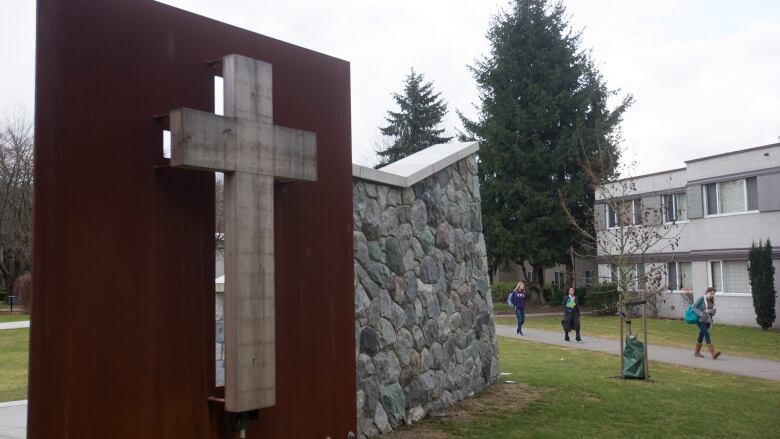TWU law school ruling: 'limiting diversity' or 'a game-changer for LGBTQ rights'?
Supreme Court ruled that law societies do not have to accredit Trinity Western's students

Trinity Western University says it is disappointed with a Supreme Court verdict that law societies in B.C. and Ontario can refuse to accredit its graduates because of the school's internal code of conduct.
TWU, a small Christian university in Langley, B.C., has a community covenant requiring students to agree to abstain from sexual relations outside of heterosexual marriage.
The Supreme Court of Canada ruled on Friday to limit the school's religious rights in order to ensure open access for LGBT students,following a lengthy courtbattle.
"We're disappointed that the Supreme Court does not think there is room in Canada for a small Christian university, that holds to traditional Christian values, to open a law school," said Earl Phillips, executive director of the proposed law school.
TWU first applied to open the law school six years ago.
"We think that Canadian diversity has to allow for difference; it even has to allow for disagreement," Phillips told Stephen Quinn, host of CBC's The Early Edition.
In 2014, law societies in three provinces, including B.C., refused to license graduates from TWU's law program because of the university's community covenant, arguing it was discriminatory against the LGBT community.
'Huge impact on religious freedom'
Jessie Legaree, an Abbotsford lawyer and former TWU student who attended the University of Toronto for law school, said the ruling left her "deeply disappointed" and "saddened for Canada."
"I think this will have a huge impact on religious freedom in Canada," said Legaree. "It is limiting diversity in Canada rather than expanding it."
Michael Mulligan, aVictoria lawyer who opposedgranting approval to the proposed law school at Trinity Western, disagrees and says it pushes diversity forward.
"It's a positive [decision] in terms of advancing the cause of equalitygenerally in Canada,"Mulligan said.
"They have in place a clearly discriminatorypolicy justified on religious grounds."
'Discriminatory practices'
He pointed out that TWU hasn't been told to change its code of conduct just that law societies don't have to support the school's policies.
"Neither the law society nor the Supreme Court of Canada are telling Trinity Western University what policies they must maintain," Mulligan said.
"While they may be free to maintain their religiously justified, discriminatory practices, they are not entitled to demand approval in that context."
MatthewWigmore, anopenly gay graduate of TWU,co-founded anLGBTnetwork calledOne TWU.
He saysthe potential fordiscrimination with a framework like the school's covenant is a problem.
"The policies in place allow the administration to discriminate," he said."But me personally, no, those policies were never exercised even though the space remained there to discriminate against me."
Wigmoresaid Friday's decision is a step forward for the country.
"It's a game-changer for LGBTQ rights across Canada," Wigmore said.
With files from The Early Edition and Yvette Brendand BCToday.












_(720p).jpg)


 OFFICIAL HD MUSIC VIDEO.jpg)
.jpg)



























































































